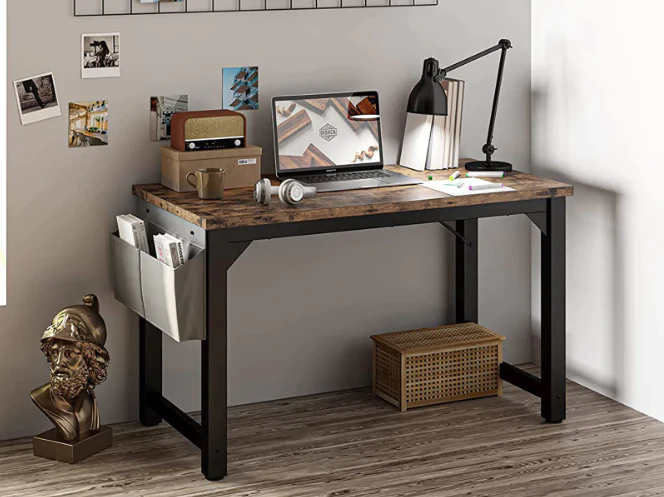A study table is a crucial piece of furniture that significantly impacts one’s productivity and focus during study or work sessions. Whether you’re a student, a professional, or someone who enjoys reading and working from home, finding the perfect study table is essential for creating a conducive and comfortable workspace. To ensure you make the right choice, consider the following factors before buying the ideal study table:
- Your Requirements:
Identifying your specific requirements is the first step in finding the perfect study table. You could be looking for a study table for your children to study or it could be your work desk. Consider who is using the study table and the type of tasks that will be performed at the table. If you primarily write or draw, a spacious flat surface is essential. For computer-based work, a study table with enough space for your monitor, keyboard, and mouse is crucial.
- Space Availability:
Assess the available space in your study area or designated workspace. Measure the dimensions of the area to determine the maximum size of the study table that can comfortably fit. A study table that is too large for the space can make the room feel cramped and hinder movement. On the other hand, a table that is too small might not provide enough surface area for all your study materials. Choose a study table whose dimensions complement the available space, creating a harmonious and functional study environment.
- Storage Requirements:
Take stock of your storage needs and the items you’ll need to keep within reach while studying. Consider the number of books, notebooks, stationery, and other study materials you use regularly. Look for study tables with ample storage options such as drawers, shelves, or compartments. Drawers are ideal for organizing smaller items like pens, notepads, and accessories, while shelves can accommodate larger items like books and folders. Having well-organized storage on your study table will keep your workspace clutter-free and enhance your productivity.
- Style, Shape, and Size:
The style, shape, and size of the study table should align with your aesthetic preferences and fit seamlessly into your room’s decor. Modern, minimalist study table design offers clean lines and a contemporary look, while traditional styles bring a sense of elegance and timelessness. Consider the overall layout and design of your study area when choosing the shape and size of the table. Rectangular or square tables are common choices, but if you have limited space, consider a corner or L-shaped study table to optimize your workspace.
- Additional Features:
Explore additional features that can enhance your study experience and make your study table more functional. An adjustable height feature allows you to customize the table’s height to find the most comfortable position for studying or working. Built-in organizers for stationery or a cup holder for beverages are practical features that add convenience to your workspace. Additionally, cable management systems for organizing chords, built-in power outlets for charging devices, or a keyboard tray for better ergonomics
- Material and Durability:
The material of the study table affects its durability and overall aesthetics. Solid wood study tables offer natural beauty and robustness, but they can be more expensive. Engineered wood or metal options are often more budget-friendly while still providing durability and style. Choose a material that complements your room’s decor and meets your desired level of quality.
- Ergonomics and Comfort:
Ergonomics plays a vital role in promoting proper posture and reducing strain during long study or work hours. Look for a modern study table with an appropriate height that allows you to sit comfortably with your feet flat on the floor and your arms at a 90-degree angle while typing or writing. Adjustable height options are beneficial as they cater to individual preferences and promote a healthier sitting posture. Features like curved edges and wrist rest promote better posture and reduce strain during long study sessions.Â
Elaborating on these factors will help you find the perfect study table that suits your specific needs and preferences. Consider your study habits, available space, storage requirements, and desired features to make an informed decision. A well-chosen study table will not only enhance your productivity but also create a comfortable and inspiring workspace for your study or work sessions.
